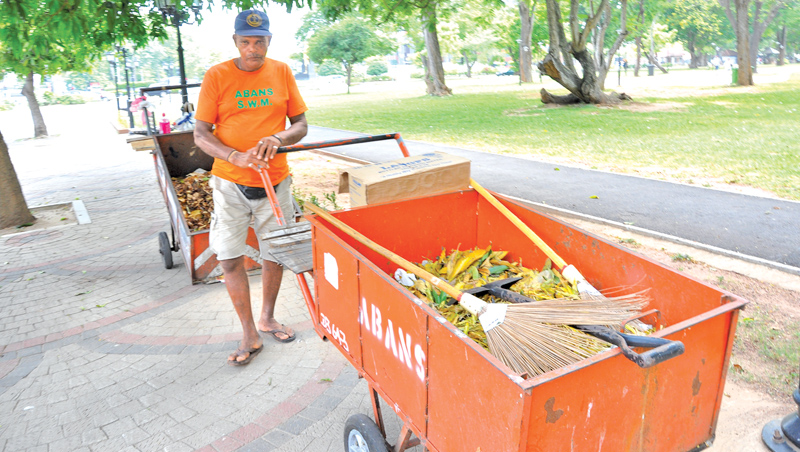In the backdrop of increasing garbage and consequences thereof, Sri Lanka is facing a significant crisis having various implications. While the municipal solid waste (MSW) generation is 6000-7000 Metric Tonnes per Day, the MSW Collection is 3600-4200 Metric Tonnes per Day (Waste Management Authority, 2017). The predicted MSW generation is continuously increasing until 2050. Therefore in this context, citizens and authorities have begun encountering loss, damage and harm in different aspects.
The present waste management mechanism suggests the categorisation of waste between degradable and non-degradable. While this is a basic classification of waste, the Municipal Councils need to strike a balance between cost of waste disposal and the process convenience for individuals and nation at large.
However, there is a paradox between the cost of waste disposal and the impact of the waste disposal mechanism, positing reactive waste management in Sri Lanka. The cost of waste disposal is increasing due to two reasons.
Firstly, the improper methods of classifying waste by households. This results in consuming more labour hours for reclassification of garbage by the collectors. Secondly, the inefficiency of waste collectors, disposers and administrators of the municipal authorities. This results in undue delays of garbage collection, obstructing the right of ways and spread of diseases due to rotten materials. Process convenience for garbage is described under three themes. These are society, economy and ecology.
Type of garbage
The societal perspective regards the consequences of improper waste disposal- the spread of diseases, unpleasant sight among others. The cost of waste disposal is considered in the economic perspective. Further, the ecological perspective regards the aspects of reduced soil, water and air pollution through the proper garbage disposal.
In order to achieve proactive waste management, it is worthy to study the processes of other jurisdictions. Singapore households profess a structured waste management strategy. General waste, aluminium, plastics and paper are the four different classes of waste categorisation (Sentosa, 2017). Despite it being a wider classification of waste, the long-term benefit of garbage process convenience is high. In the short-run, individuals need to practice rationality, reduce malpractices, due diligence and discipline in methodically disposing of waste according to the type of garbage.
At this juncture is it important to cite two legal aspects of waste management-contributory negligence and polluter pay principle. In the context of the rising cost of waste disposal in Sri Lanka, both households and municipal authorities have a shared responsibility to help the process of waste disposal at a lower cost. On the other hand, theoretically, the polluter is the garbage disposer (Household) who disposes of garbage in an improper and irregular manner. He should be liable to pay a fine for any irregular actions committed or omitted thereof. In certain countries, such wrongdoers have been imposed a penalty for cleaning a public area (roadway or sea beach) for a reasonable time period. This penalty is implemented if the wrongdoer has committed the act or omission more than once even after being warned. This is a strategy to recover the cost of garbage disposal.
Culture, discipline and attitude
Sri Lanka can capitalise on such inventive foreign practices. However, the effectiveness of adoption depends on various contextual factors- culture, discipline and attitude towards achieving an environment [cleaner] devoid of unmanaged waste. On the short-term, the cost of implementing such processes will be high but would yield long-term benefits such as cost saving for the country, time of employees of municipalities, healthier soil, air and waterways. Hence the opportunities for proactive waste management comprise of both tangible and intangible benefits for Sri Lanka.
The practical implications of proactive solid waste management are two-fold. Firstly, it is an action-driven initiative of planning, organising, leading and controlling the waste disposal process from household to the dump yard. Secondly, this action-driven process fuels the planning, processing and proliferation (3PTM) of effective waste management practices. It is each individual’s drive towards the collective realisation of benefits of proactive solid waste management.



Add new comment